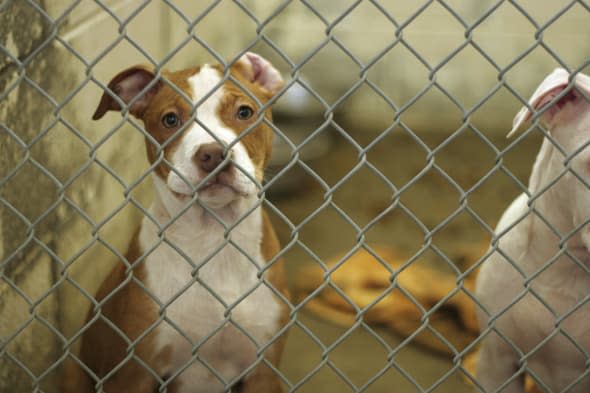Before you rehome a dog

Giving a dog a new start can be hugely rewarding – but before you take on the lifetime commitment of rehoming an animal, there are things you need to consider.
Related Searches
Your suitability
Most rehoming centres will ask you to fill in an application form before being interviewed with a member of their animal centre staff. They may bring a dog out of kennels to meet you and get to know you better. Some centres ask to carry out home visits and may suggest minor changes to ensure the dog adjusts well to their new environment, and may arrange a follow-up visit at home to check how you're getting on.
%VIRTUAL-AFCSponserAds%Your commitments
If you work full time you may be considered unsuitable to rehome a dog, which includes those who come home at lunch time or arrange for a dog walker. Some centres specify that an adult dog should not be left alone for more than four or five hours in a 24 hour period. As well as having the time and ability to walk a dog twice a day, you need to have the financial resources to care for an animal – food, equipment and vets bills/pet insurance can all add up.
The right pet for you
As well as needing to have the right lifestyle and home environment, you will need to find out about the history of the animal. Many of the dogs that come into rescue centres are strays or are from crisis situations. You should think very carefully about bringing an animal into a house with children or other pets, especially if you don't know its full history. The rehoming centre should specify whether an animal is unsuitable to be rehomed with other pets or children in the house.
Assessing each dog
The centre should give each dog a chance to settle in and carry out on-going assessments to determine its temperament; and staff will handle, cuddle and groom pets as part of their assessment. That way, they can find out about the animals' personality and build up a picture of what type of home would suit them. If the previous owners have handed over the dog (rather than being a stray) staff will gather information about the animal's likes and dislikes and medical history.
For example, each animal that comes into Battersea Dogs & Cats Home is assessed by a member of their veterinary team and their highly-experienced and trained behavioural assessors. Only animals that can be rehomed safely and responsibly are offered to the public. You may also want to ask how long the animal has been at the rescue centre. On average, dogs stay at Battersea Dogs Home for 36 days before they're found a new home.
Health checks
Where possible, rescue centres should have health checked each dog and given them regular preventative treatment against worms and fleas, as well as ensuring they've been vaccinated, spayed or snipped, and microchipped. If this isn't mentioned, you should ask them to confirm what healthcare the animal has received.
How much will it cost?
Many rehoming centres will ask you to pay a fee when you rehome one of their animals. This varies, but can be upwards of £100. For example, The Blue Cross for Pets asks for £125 towards the cost of your dog's care during their stay with them. The rehoming fee at Battersea Dogs & Cats is £135 for dogs (over 6 months) and £165 for puppies (under 6 months).
Have you rehomed a dog? What advice would you give to others considering the process?




